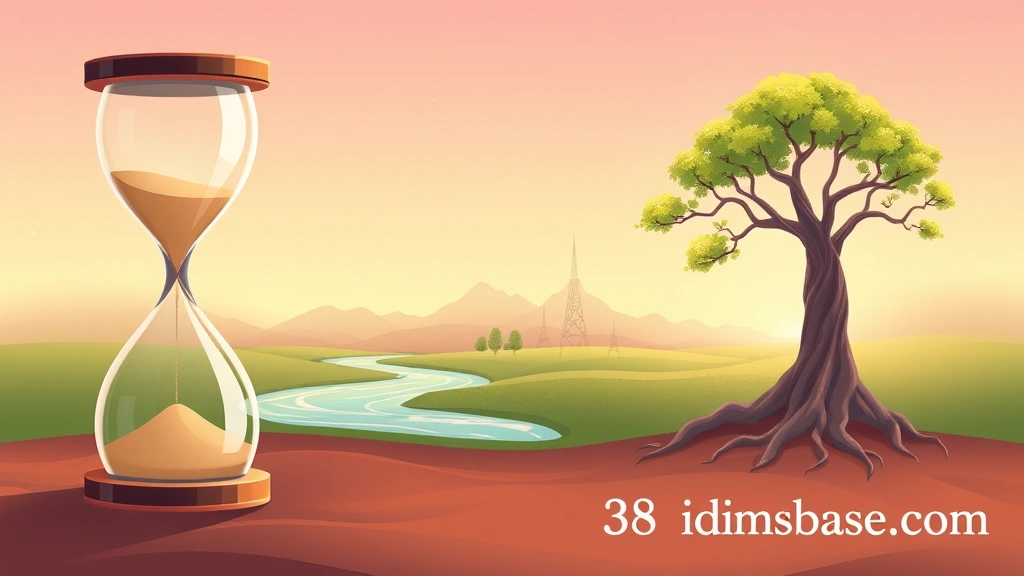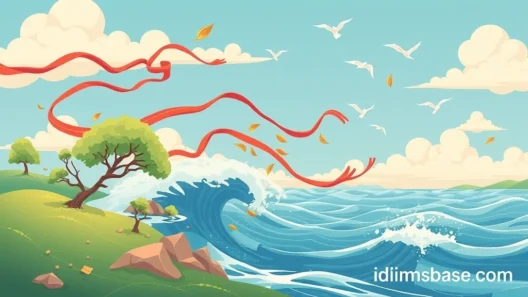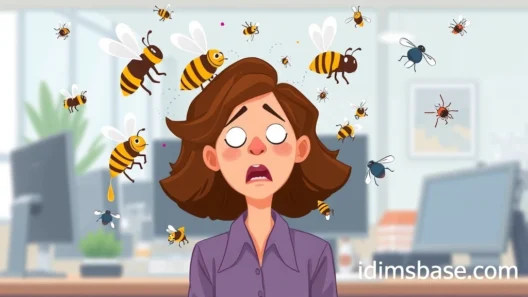Do you ever feel like time is moving at a snail's pace, especially when you're waiting for something important? Patience, that quiet virtue, often feels like a superpower in our fast-paced world. It’s not always easy to cultivate, but it’s incredibly rewarding. Think of it as a muscle you strengthen over time. We all know patience is important, but how do we truly grasp its essence? Let's dive into 38 vivid metaphors that paint a picture of patience, helping you understand it in new and exciting ways.
The Art of Waiting: 38 Metaphors for Patience
Patience isn't just about waiting; it's about how you wait. It's about maintaining calm and perspective when things aren't happening as quickly as you'd like. These metaphors will help you see patience from various angles, from the gentle to the powerful.
- Patience is a Seed: Imagine a tiny seed, holding the promise of a mighty oak. You can't rush its growth. You plant it, water it, and wait.
- Patience is a River: It flows steadily, sometimes slow, sometimes fast, but always moving towards its destination, carving its path over eons. It doesn't fight the rocks; it flows around them.
- Patience is a Deep Breath: When life gets hectic, a deep breath calms your nerves. It’s a pause, a moment to reset before moving forward.
- Patience is a Long Game: Think of chess or a marathon. You don't win on the first move or in the first mile. It's about strategy, endurance, and seeing the bigger picture.
- Patience is a Steady Anchor: In a stormy sea of uncertainty, patience keeps your ship from drifting, holding you firm until the waves subside.
- Patience is a Gentle Rain: It nourishes the earth slowly, drop by drop, allowing life to flourish without overwhelming it.
- Patience is a Woven Tapestry: Each thread is added carefully, one at a time, building a beautiful and intricate design over time. You can't rush the artistry.
- Patience is a Silent Gardener: You plant the seeds of your desires and tend to them, trusting that they will bloom in their own time.
- Patience is a Cooked Meal: Good food takes time. You can't rush the baking or the simmering. It needs to cook thoroughly to be truly delicious.
- Patience is a Polished Gem: A rough stone becomes brilliant only after countless hours of careful grinding and polishing. It's a slow, meticulous process.
- Patience is a Fisherman's Line: You cast your line and wait, sometimes for hours, for the right moment, for the fish to bite. It requires stillness and trust.
- Patience is a Sculptor's Hand: Slowly, carefully, chip by chip, the sculptor reveals the form hidden within the stone. It's a journey of gradual transformation.
- Patience is a Brewing Storm: You see the clouds gathering, feel the shift in the air, and know the storm is coming. You can’t stop it, but you can prepare and wait for it to pass.
- Patience is a Sturdy Bridge: It connects where you are to where you want to be, allowing you to cross challenges safely and surely.
- Patience is a Fading Echo: Some things take time to disappear, like an echo fading in the distance. You simply have to let them go.
- Patience is a Winter Sleep: Nature rests, gathers strength, and prepares for new growth during the long, cold winter. It's a time of quiet waiting.
- Patience is a Melting Glacier: Massive and slow, it carves landscapes over millennia, showing the immense power of gradual change.
- Patience is a Healing Wound: A cut or bruise doesn't heal instantly. It takes time, care, and rest. You can't rush the body's natural process.
- Patience is a Sunrise: It doesn't burst forth; it gradually brightens the sky, signaling the coming of a new day.
- Patience is a Growing Child: You nurture them, teach them, but you can't force them to grow up faster. They develop at their own pace.
- Patience is a Calm Lake: Its surface reflects the sky perfectly when undisturbed, showing clarity and peace.
- Patience is a Butterfly Emerging: The chrysalis seems still for a long time, but inside, a miraculous transformation is happening, ready for its grand reveal.
- Patience is a Lighthouse Beam: It consistently shines its light, guiding ships home through darkness and fog, never giving up.
- Patience is a Deep Well: You draw water from it slowly, knowing there's a steady supply, but it requires effort and time.
- Patience is a Mountain: It stands firm and strong, enduring countless storms and changes over geological time.
- Patience is a Promise Kept: It's about trusting that things will unfold as they should, even if the timeline isn't clear.
- Patience is a Gentle Breeze: It moves through the trees, rustling leaves, but never forcing its way, just subtly influencing.
- Patience is a Slow Burn: Like embers glowing in a fire, it holds warmth and potential, ready to ignite when the time is right.
- Patience is a Hidden Treasure: You might search for a long time, go through many trials, but the reward is worth the wait.
- Patience is a Building Under Construction: It takes blueprints, materials, and many hands working over time to create a strong structure.
- Patience is a Marathon Runner's Pace: Not too fast, not too slow, but a consistent, sustainable rhythm to reach the finish line.
- Patience is a Detective's Clue: You follow leads, gather evidence, and piece things together slowly until the full picture emerges.
- Patience is a Turning Tide: The ocean recedes and returns in its own rhythm, an unstoppable force operating on its own clock.
- Patience is a Wise Old Tree: Its roots go deep, its branches spread wide, having witnessed countless seasons and changes.
- Patience is a Meticulous Weaver: Each thread is placed with care, building a strong and beautiful fabric, one row at a time.
- Patience is a Calm Ocean Current: It moves vast amounts of water slowly but powerfully across the globe, an unseen force of nature.
- Patience is a Deep Root System: It anchors a plant firmly, allowing it to withstand storms and draw nourishment over time.
- Patience is an Unfurling Fern: It slowly, delicately unrolls its fronds, revealing its full beauty over days, not hours.
Why Embrace Patience? The Hidden Benefits
You might wonder, why go through the trouble of cultivating patience? In a world that constantly demands instant gratification, patience feels almost counter-cultural. Yet, its benefits are profound and far-reaching.
- Reduced Stress: When you're patient, you're less likely to get frustrated by delays or setbacks. This means less stress hormones flooding your system!
- Better Decision-Making: Patience allows you to pause, think clearly, and avoid hasty choices you might regret later. It's like giving your brain time to process.
- Stronger Relationships: Dealing with people requires patience. It helps you listen better, empathize more, and avoid snapping when things get tough.
- Increased Resilience: When you can wait out a storm, you build inner strength. You learn that challenges pass, and you can endure them.
- Greater Success: Whether it's a career goal, a personal project, or learning a new skill, patience is often the secret ingredient to seeing things through to completion.
- Improved Well-being: A patient mind is a peaceful mind. You'll find more joy in the journey, rather than just focusing on the destination.
Cultivating Your Inner Patience Garden
So, how do you become more patient? It's not an overnight transformation, but a continuous practice. Think of it as tending to a garden – it requires consistent effort and care.
- Practice Mindfulness: Pay attention to the present moment. When you feel impatience creeping in, notice it without judgment. Just observe.
- Identify Triggers: What makes you impatient? Traffic? Slow internet? Long queues? Knowing your triggers helps you prepare and manage your reactions.
- Set Realistic Expectations: Not everything happens instantly. Understand that some things simply take time.
- Distract Yourself Productively: If you're waiting, use the time wisely. Read a book, listen to a podcast, or do a quick chore.
- Practice Deep Breathing: When you feel impatience rising, take a few slow, deep breaths. This calms your nervous system.
- Reframe Your Perspective: Instead of seeing waiting as a waste of time, see it as an opportunity. An opportunity to rest, to think, or to simply be.
- Start Small: Don't try to become infinitely patient overnight. Start by practicing patience in small, everyday situations.

FAQ: Your Questions About Patience Answered
You've got questions, and we've got answers! Let's clear up some common thoughts about this essential virtue.
Q1: Is patience a natural trait, or can it be learned?
A1: While some people might seem naturally more patient, it's definitely a skill that can be learned and developed. Think of it like a muscle – the more you exercise it, the stronger it gets. Consistent practice and self-awareness are key.
Q2: What's the difference between patience and procrastination?

A2: This is a great question! Patience is about waiting constructively for the right time or for processes to unfold naturally, often with a clear goal in mind. Procrastination, on the other hand, is about delaying action due to fear, laziness, or disorganization, often to your detriment. Patience is active waiting; procrastination is passive avoiding.
Q3: Can being too patient be a bad thing?
A3: Yes, sometimes. While patience is generally positive, excessive patience can sometimes lead to inaction when action is needed. It can also be mistaken for complacency or a lack of ambition. There's a fine line between patient waiting and allowing opportunities to pass you by. It's about balance!
Q4: How does patience relate to mental health?
A4: Patience plays a significant role in mental well-being. Practicing patience can reduce stress, anxiety, and frustration. It helps you develop resilience in the face of adversity and fosters a more positive outlook on life. Impatience, conversely, can contribute to feelings of anger, helplessness, and agitation.

Q5: What are some practical tips for teaching patience to children?
A5: Teaching patience to children involves modeling the behavior yourself. You can also:
- Delay gratification: Make them wait a short period for a treat or toy.
- Involve them in activities that require patience: Cooking, gardening, building puzzles.
- Use timers: For screen time or waiting turns.
- Explain the "why": Help them understand why they need to wait.
- Praise effort: Acknowledge their attempts at being patient.
Q6: How can I stay patient when I'm facing significant delays or setbacks?
A6: When facing big challenges, it's tough to stay patient. Try these strategies:
- Focus on what you can control: You can't control the delay, but you can control your reaction.
- Break it down: If the goal is far off, focus on smaller, manageable steps.
- Practice self-compassion: It's okay to feel frustrated, but don't dwell on it.
- Seek support: Talk to friends, family, or a mentor who can offer perspective.
- Remind yourself of past successes: Remember times you waited and it paid off.
Key Takeaways
Patience is more than just waiting; it's a powerful virtue that transforms your experience of life.
- Patience is diverse: From a deep breath to a growing child, these 38 metaphors show patience in many forms, highlighting its steady, nurturing, and enduring qualities.
- It's incredibly beneficial: Cultivating patience leads to less stress, better decisions, stronger relationships, and greater overall success and well-being.
- Patience is a skill: While it might not come naturally to everyone, it can be learned and strengthened through conscious practice and self-awareness.
- It requires active engagement: It's not passive waiting, but an active choice to remain calm, focused, and purposeful while things unfold.
- Balance is essential: While patience is good, it's important not to confuse it with procrastination or inaction. There's a time to wait and a time to act.
Embracing patience allows you to navigate life's uncertainties with grace and wisdom. Which metaphor resonates most with you? How will you cultivate more patience in your own life today? Share your thoughts and let's continue this journey of understanding together!





